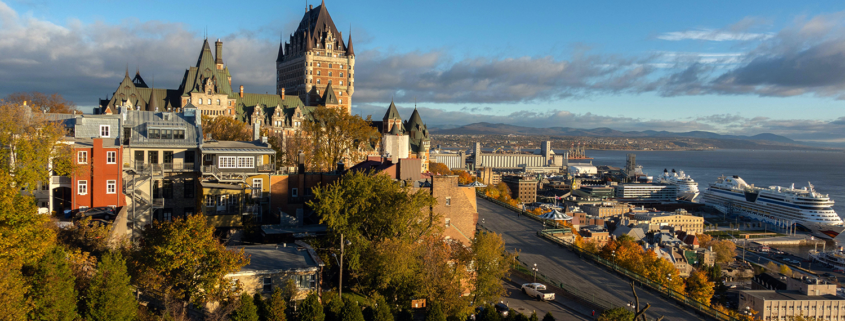A Framework for Equitable Climate Change Adaptation for Municipalities
Municipal governments play a crucial role in land use planning and management in climate change, as noted in the Milestone document of Canada’s 2023 National Biodiversity Strategy, which, as a draft document, is currently open for public comment until February 9, 2024. To facilitate “[e]nsuring a whole-of-government approach to create policy coherence across environmental, economic, and social mandates”, as called for in the Milestone document, it is worth asking how can municipal governments facilitate equitable approaches to climate change adaptation?
Both the USDN Guide to Equitable Community-Driven Climate Preparedness and the ICLEI Equitable Climate Change Adaptation Report (that draws from the USDN Guide) offer a framework for local and municipal governments to develop equitable and inclusive climate change adaptation strategies. Both documents encourage a systems-based approach to identifying historical inequities in community planning and how the impacts of climate change across communities are assessed, knowing that “climate change vulnerability[ies] are not evenly spread.”
Equitable climate change adaptation involves municipalities and partners fostering equitable and inclusive participation leading to community-driven approaches to climate change adaptation. Drawing from the USDN guide, the ICLEI report elaborates on three equity objectives for local governments engaging in inclusive climate change adaptation strategies; these are procedural, distributional, and structural. Procedural objectives address the fair transparent inclusive processes and treatment of people, and highlights engaging participants from “communities disproportionately impacted by climate change.” Distributional objectives address an equitable distribution of resources and of the benefits and burdens associated with projects. Resources should also prioritize communities that experience “the greatest impacts, inequities, and unmet needs.” Structural objectives “commit to correct past harms and prevent unintended consequences” as well as address the inequities undergirding structural and institutional systems.
The ICLEI report offers a step-by-step approach to making the case for municipal governments to center equity in climate change adaptation and offers examples for climate change impacts on equity issues including, housing and homelessness, energy security, food security, and green infrastructure and public space. The report also highlights three associated project types, offering examples of adaptation infrastructure projects, adaptation plans and policies, and programming for climate adaptation, including the Project Watershed: Kus-kus-sum involving a partnership with K’ómoks First Nation and the City of Courtney in British Columbia, and related subsequent restoration plans.
Over 61 cities from around the world – including 23 Canadian cities – signed the Montreal Pledge (since it was proposed at COP15 in 2022) to undertake tangible actions to protect biodiversity. Several cities, including Montreal, Vancouver, and Quebec City also endorsed the Edinburgh Declaration, which recognizes “the contributions by subnational governments (including cities and local authorities) to the achievement of global diversity goals and targets” as laid out in the Kunming-Montreal Global Biodiversity Framework (KMGBF).
Knowing that municipal leaders play a key role in determining how to “halt and reverse” the loss of biodiversity in cities, it is vital for cities to consider how to move from their intentions for equity in climate change adaptation, to achieving measurable outcomes.
By Leela Viswanathan
(Image Credit: Rich Martello, Unsplash)

 Rich Martello, Unsplash
Rich Martello, Unsplash

 Andreas Gucklhorn
Andreas Gucklhorn Steve Adams, Unsplash
Steve Adams, Unsplash